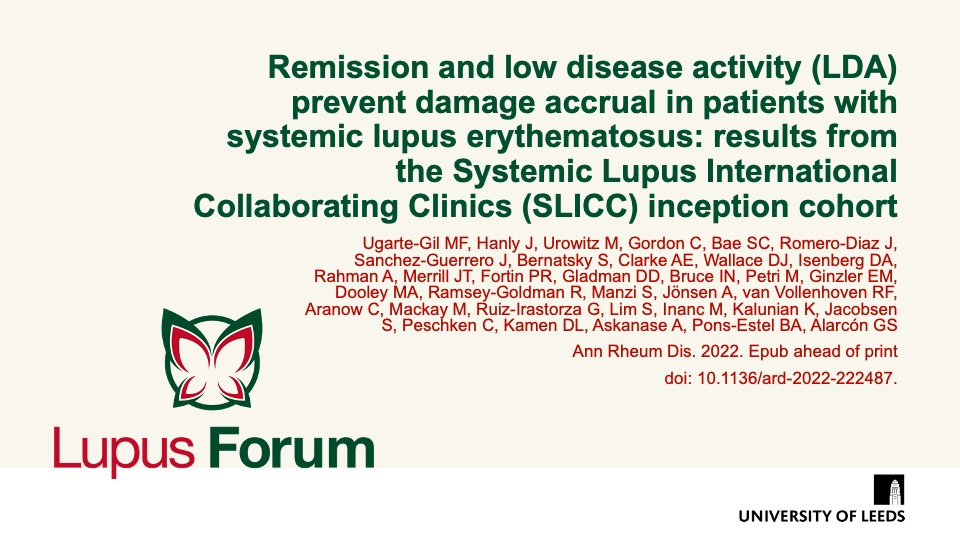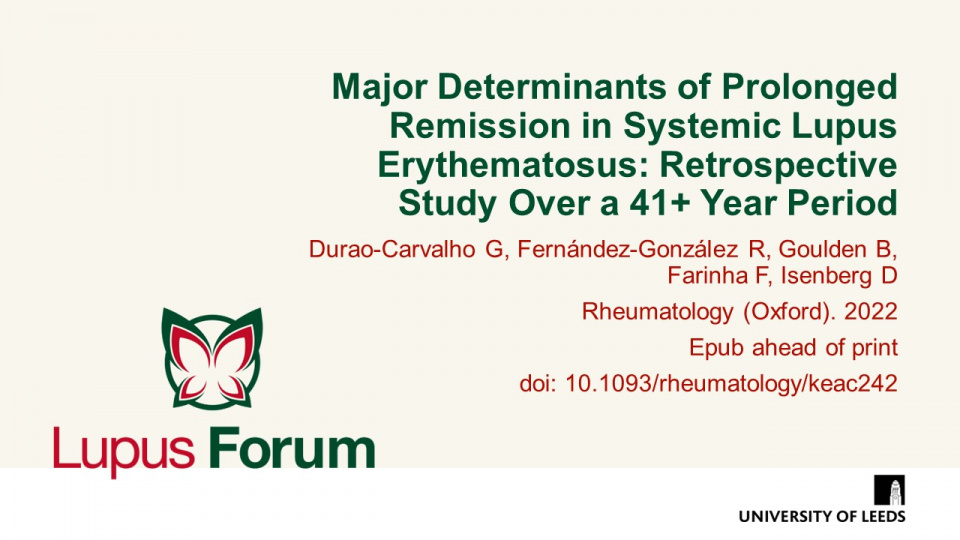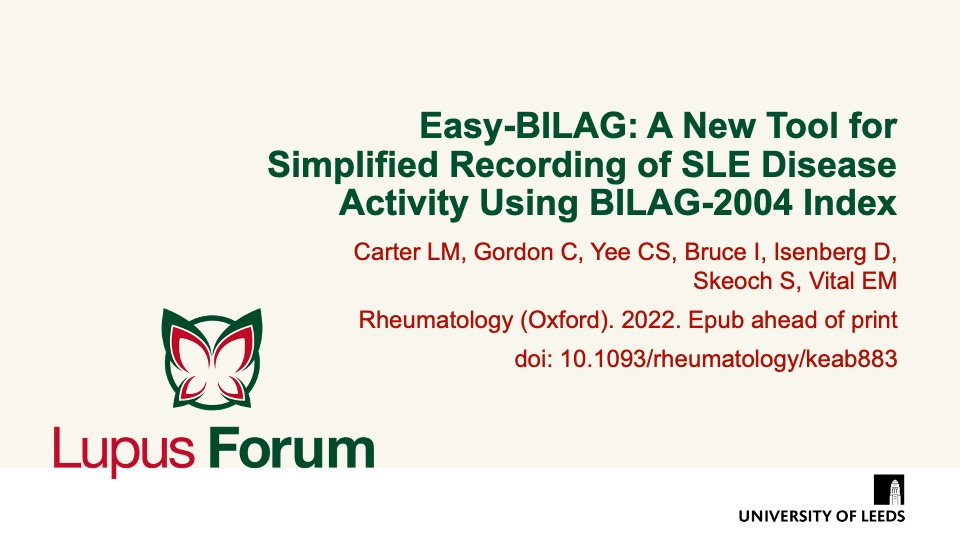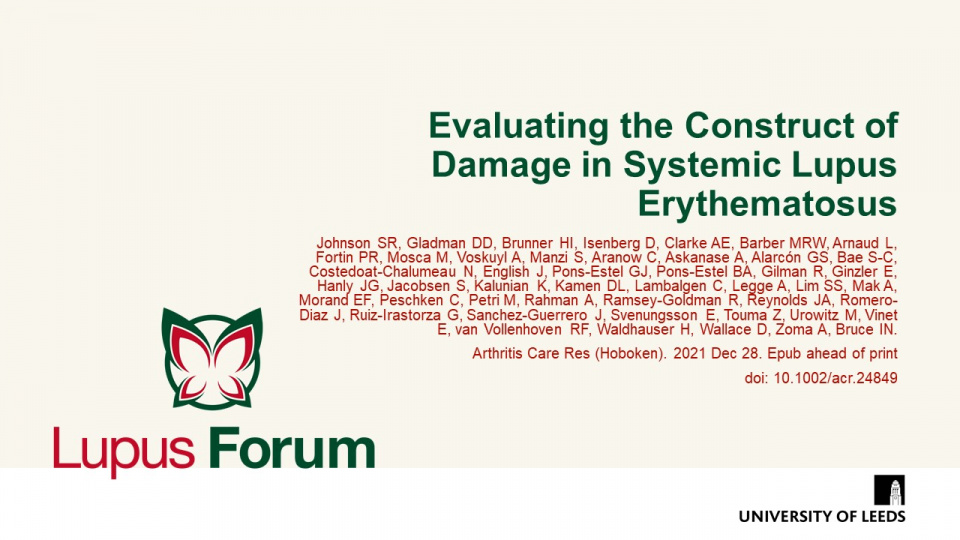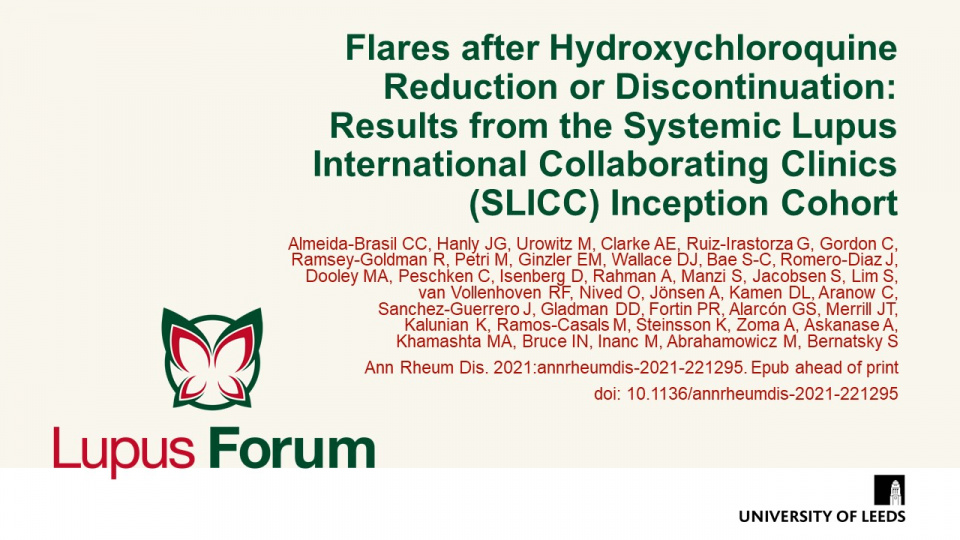Publications
Find coverage of the latest original articles on Lupus, focusing on those with data on therapeutic interventions and those that have clinical impact.
This activity is supported by an educational grant from AstraZeneca.
Remission and low disease activity (LDA) prevent damage accrual in patients with systemic lupus erythematosus: results from the Systemic Lupus International Collaborating Clinics (SLICC) inception cohort
Ann Rheum Dis. 2022. Epub ahead of print doi: 10.1136/ard-2022-222487.
Large multinational, multiethnic cohort, study highlights the importance of treating-to-target in SLE.
Keywords:
Major Determinants of Prolonged Remission in Systemic Lupus Erythematosus: Retrospective Study Over a 41+ Year Period
Rheumatology (Oxford). 2022 Epub ahead of print
Retrospective observational study over a 41-year period finds complete remission (CR) in SLE to be associated with Caucasian race, older age at diagnosis, absence of renal involvement and absence of antiphospholipid syndrome.
Easy-BILAG: a new tool for simplified recording of SLE disease activity using BILAG-2004 index
Rheumatology (Oxford). 2022. Epub ahead of print doi: 10.1093/rheumatology/keab883
Easy-BILAG is a high-accuracy, time-efficient tool for recording BILAG-2004 disease activity in systemic lupus erythematosus (SLE).
Disease activity measurements in SLE are necessary for optimal patient care, treat-to-target approaches and clinical guidelines. However, administrative burden and potential frequency of errors with the current comprehensive disease activity instrument (BILAG-2004) limits its use in routine practice.
Evaluating the Construct of Damage in Systemic Lupus Erythematosus
Arthritis Care Res (Hoboken). 2021 Dec 28. Epub ahead of print
Study identifies shifts in the paradigm of systemic lupus erythematosus (SLE) damage and develops a unifying conceptual framework to inform development of a revised SLE Damage Index (SDI).
Shifts in the concept of damage in SLE have occurred with new insights into disease manifestations, diagnostics, and therapy. Consequently, there is a need for a revised SDI, to incorporate additional factors that contribute to damage accrual.
Flares after Hydroxychloroquine Reduction or Discontinuation: Results from the Systemic Lupus International Collaborating Clinics (SLICC) Inception Cohort
Ann Rheum Dis. 2021:annrheumdis-2021-221295. Epub ahead of print
Evidence suggests that hydroxychloroquine (HCQ) reduction/withdrawal may be safe in some stable patients, but in other settings it may be associated with disease flare. Almeida-Brasil, et al. sought to evaluate SLE flares following HCQ reduction or discontinuation versus HCQ maintenance. Their data suggest that maintaining HCQ was associated with a lower flare risk than reduction or discontinuation, even in patients with low disease activity or remission.


